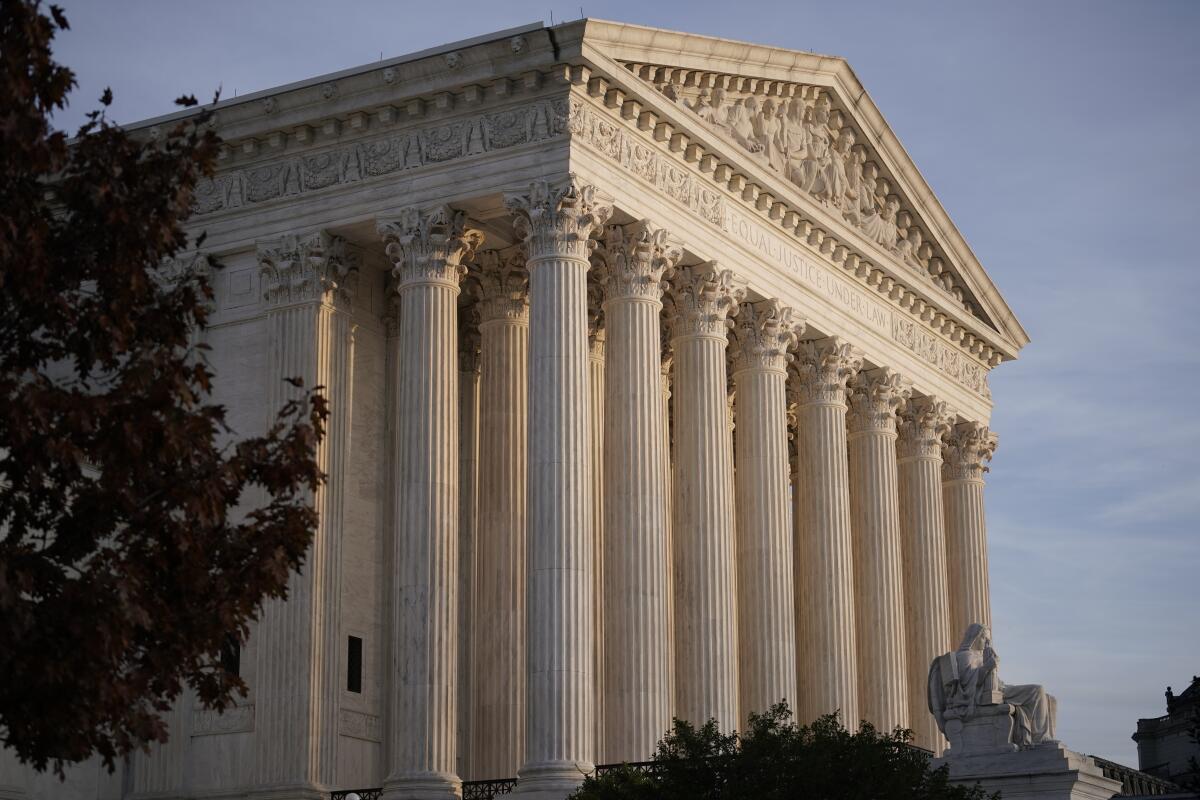Supreme Court weighs whether immigrants granted TPS can get green cards

- Share via
WASHINGTON — The Supreme Court may allow the Biden administration to decide how to handle the hundreds of thousands of immigrants who have been granted a temporary, but not permanent, right to live and work in the United States.
Most of them came from El Salvador, Honduras or Haiti, and have had “temporary protected status” for decades. They have established careers and families. The Biden administration would like to offer them green cards, and if Congress agrees, a pathway to citizenship.
But during an unusual argument Monday, a Justice Department lawyer defended the government’s long-standing position that the 1990 law passed by Congress did not give these TPS holders a right to permanent lawful status if they entered the country illegally years ago.
These immigrants “did not make a lawful entry to the United States,” Michael Huston, an assistant to the U.S. solicitor general, told the court. The law refers to those who were “admitted” to the United States and that could include, for example, foreign students.
So, while the law provides “temporary protection during a crisis,” it does not give all of these immigrants “a special pathway” to a green card or citizenship, he said.
When questioned by the justices, however, Huston said the administration would prefer the court rule tentatively that this legal position is a “reasonable” one. Doing so would not prevent the Department of Homeland Security from changing its view later, he explained.
Chief Justice John G. Roberts Jr. openly questioned the tentative tone of the administration’s legal brief. Did the government really want to win the case, he asked.
But Justice Brett M. Kavanaugh appeared to agree the court should defer to Congress and the new administration. “Why should we jump in when Congress is very focused on immigration,” he said.
The Trump administration had moved to end the temporary protected status for the Central Americans, but its plans were blocked by the courts. And since taking office in January, the Biden administration has extended the protection to cover Venezuelan and Burmese immigrants. And it proposed legislation that would give green cards to TPS recipients and allow them to seek citizenship.
The Supreme Court agreed in early January to take up the issue because lower courts were split on whether TPS holders were eligible for green cards. The 9th Circuit Court in California said they were, while the 3rd Circuit Court in Philadelphia said they were not.
The case of Sanchez vs. Mayorkas arose from an appeal by a Salvadoran married couple — Jose Sanchez and Sonia Gonzalez — who have lived in New Jersey for more than 20 years. He is a mechanic for Viking Yachts, and they have four sons.
Salvadorans were granted temporary protection in 2001 after their home country was devastated by several earthquakes. Sanchez sought a green card but was turned down by immigration authorities.
During Monday’s argument, it appeared the justices will uphold the government’s authority to deny green cards to immigrants like Sanchez.
But such a ruling will not prevent the administration or Congress from extending such protection to immigrants who have lived here for years.
The other countries with TPS designations are Nicaragua, Somalia, Sudan, South Sudan, Syria, Nepal and Yemen.
More to Read
Get the L.A. Times Politics newsletter
Deeply reported insights into legislation, politics and policy from Sacramento, Washington and beyond. In your inbox twice per week.
You may occasionally receive promotional content from the Los Angeles Times.










